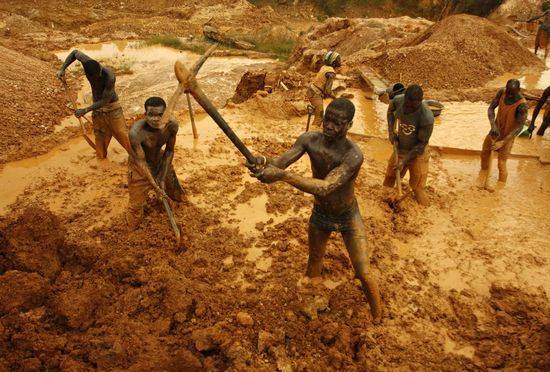The Impact of Galamsey in the Ashanti Region: A Growing Concern
Illegal mining, known locally as "galamsey," has become a major environmental and socio-economic issue in Ghana, particularly in the Ashanti Region. Despite government efforts to regulate small-scale mining, many individuals and groups continue to engage in these unauthorized activities, causing severe damage to the environment and local communities.
The State of Galamsey in Ashanti Region
The Ashanti Region, rich in mineral resources, has become a hotspot for galamsey activities. Towns such as Obuasi, Amansie, and Konongo have witnessed significant environmental degradation due to illegal mining. Galamseyers, driven by the promise of quick wealth, use unregulated and hazardous mining techniques, including the use of mercury and cyanide, which pose serious health and environmental risks.
Reports indicate that illegal mining operations have led to deforestation, destruction of farmlands, and contamination of water bodies such as the Offin and Oda rivers. This not only threatens biodiversity but also jeopardizes the livelihoods of farmers and local communities who rely on these natural resources.
Environmental and Social Consequences
One of the most alarming consequences of galamsey in the Ashanti Region is the pollution of water sources. Several rivers that provide drinking water have been contaminated, forcing communities to depend on unsafe alternatives. This has resulted in health issues such as skin diseases, respiratory problems, and waterborne illnesses.
Additionally, the influx of illegal miners has led to an increase in social vices, including crime, child labor, and school dropouts. Young people who should be in school are often lured into mining activities with the hope of making quick money, thereby disrupting their education and future prospects.
Government Interventions and Challenges
The Ghanaian government has made several attempts to curb galamsey, including the deployment of anti-galamsey task forces and the introduction of community mining initiatives. However, enforcement has been inconsistent, and corruption within some regulatory agencies has further complicated efforts to eradicate illegal mining.
Despite crackdowns, galamsey remains widespread due to poverty, high unemployment rates, and the involvement of influential individuals who protect illegal miners for financial gain.
The Way Forward
To combat galamsey effectively, the government must strengthen enforcement measures, provide alternative livelihoods for miners, and promote responsible small-scale mining practices. Additionally, community education and strict penalties for illegal miners are essential to deter further destruction.
Galamsey in the Ashanti Region remains a pressing issue, and tackling it requires collective effort from the government, local communities, and environmental advocates. Follow for more updates on this critical topic!
I’ve written an article discussing the impact of galamsey in the Ashanti Region, its consequences, and possible solutions. Let me know if you’d like any modifications or additional insights!




No comments yet
Be the first to share your thoughts!